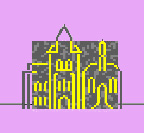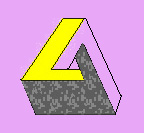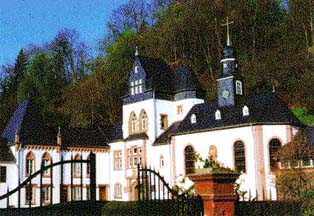

 |
 |
15th Workshop "Theoretical Foundations of Computer Vision"Outdoor and Large-Scale Real-World Scene AnalysisSchloß Dagstuhl/Wadern (near Saarbrücken/Germany)2011
Frank Dellaert (USA) and Jan-Michael Frahm (USA)
 The topic of the meeting is Large-Scale Outdoor Scene Analysis , which covers all aspects, applications and open problems regarding the performance or design of computer vision algorithms capable of working in outdoor setups and/or large-scale environments. Developing these methods is important for driver assistance, city modeling and reconstruction, virtual tourism, telepresence, and outdoor motion capture. With this meeting we aim to attain several objectives, outlined below. A first objective is to take stock of the performance of existing state-of-the-art computer vision algorithms and define metrics and benchmark data-sets on which to evaluate them. It is imperative that we push existing algorithms, which are currently benchmarked or tested with artificial or indoor set-ups, towards {\em real} applications. Methods of interest are 3D reconstruction, optic flow computation, motion capture, surveillance, object recognition, and tracking. These need to be dragged out of the lab and into the real world. Over the last years the computer vision community has recognized this problem and several groups are increasingly concentrating on the analysis of uncontrolled scenes. Examples include reconstructing large city models from online image collections such as Flickr, or human tracking and behavior recognition in TV footage or video from arbitrary outdoor scenes. An outcome we envision is the definition of appropriate metrics, benchmark sequences, and the definition of a grand-challenge problem that exposes algorithms to all the difficulties associated with large-scale outdoor scenes while simultaneously mobilizing the research community. A second objective, then, is to define what the open problems are and which aspects of outdoor and large-scale scene analysis make the problem currently intractable. In uncontrolled, outdoor settings many problems start to arise, among them harsh viewing conditions, changing lighting conditions, artifacts from wind, rain, clouds or temperature etc. In addition, large-scale modeling, i.e. spanning city-scale areas, contains difficult challenges of data association and self-consistency that simply do not appear in smaller data-sets. Failure of basic building-block algorithms seems likely or even inevitable, requiring system-level approaches in order to be robust to failure. One of difficulties lies in the fact that the observer looses complete control over the scene, which can become arbitrary complex. This also brings with it the challenge to describe the scene in other than purely geometric terms, i.e., perform true scene understanding at multiple spatial and temporal scales. Finally, outdoor scenes are dynamic and changing over time, requiring event learning and understanding as well as integrating behavior recognition. In this, we hope to also bring in participants from industry in order to ground the challenges we will define in real-world, useful applications. The third and final objective is to discuss strategies that address these challenges, by bringing together a diverse set of international researchers with people interested in the applications, e.g. arising from photogrammetry, geoinformatics, driver assistance systems or human motion analysis. Though these people may work in different fields and communities, they are unified by their goal of dealing with images and/or video from outdoor scenes and uncontrolled settings. In the workshop we want to allow for an exchange of different modeling techniques and experiences researchers have collected. We will allow time for working groups during the workshop that connect people and whose goals are to develop ideas/roadmaps, additionally we allow young researchers to connect with senior researchers, and in general allow for an exchange between researchers who would usually not meet otherwise. Similar to earlier Dagstuhl workshops of the series "Theoretical Foundations of Computer Vision" we will edit a book (e.g. Springer) as postproceeding afterwards. Previous Workshops "Theoretical Foundations of Computer Vision":
14th (2008):
Statistical and Geometrical Approaches to Visual Motion Analysis:
proceedings will be published in 2009 by Springer (LNCS).
(ed. D. Cremers, B. Rosenhahn and A. Yuille)
|